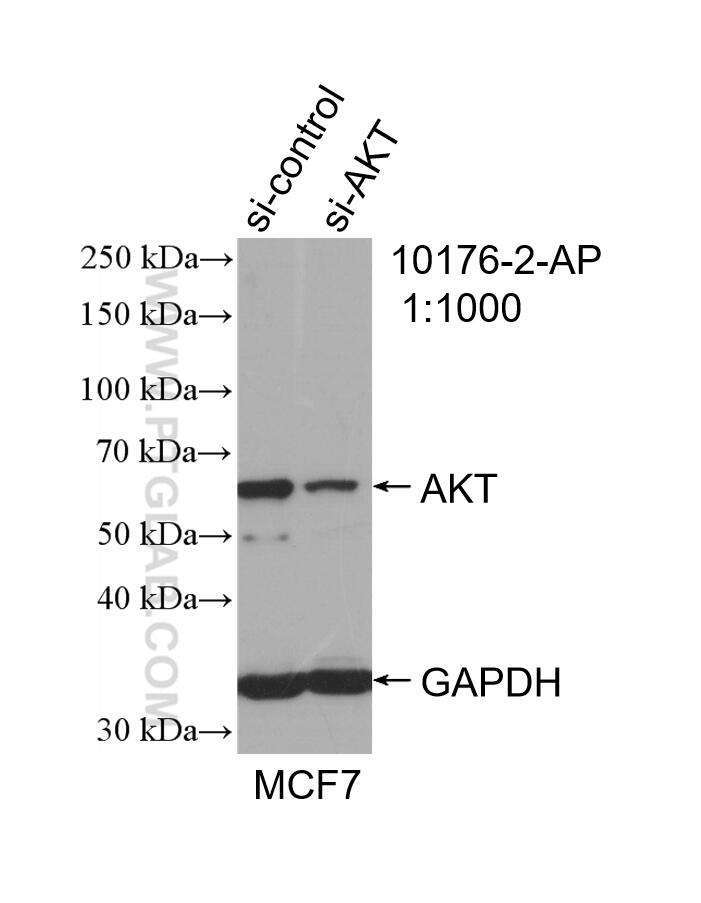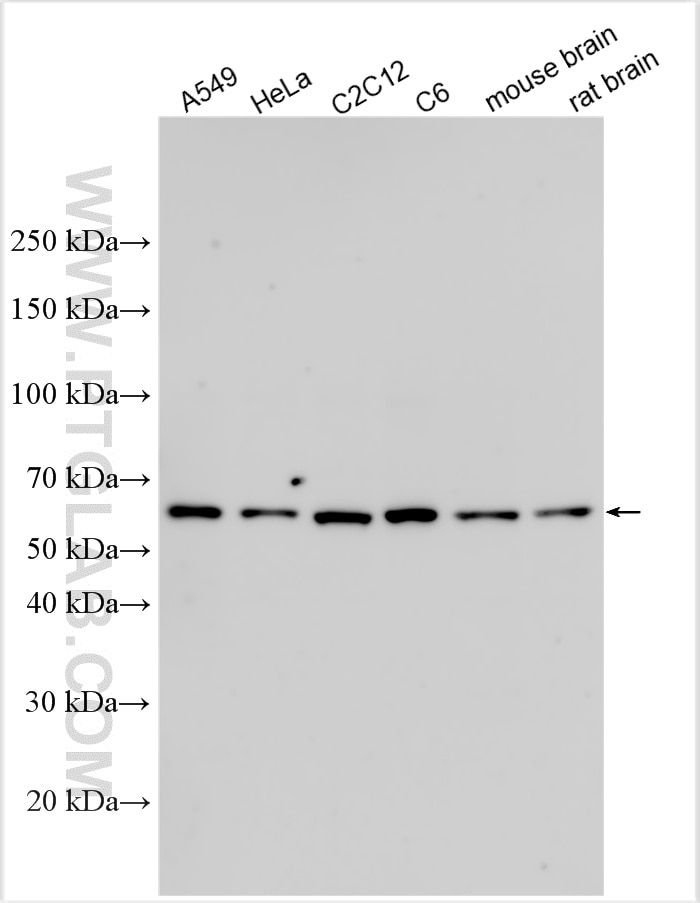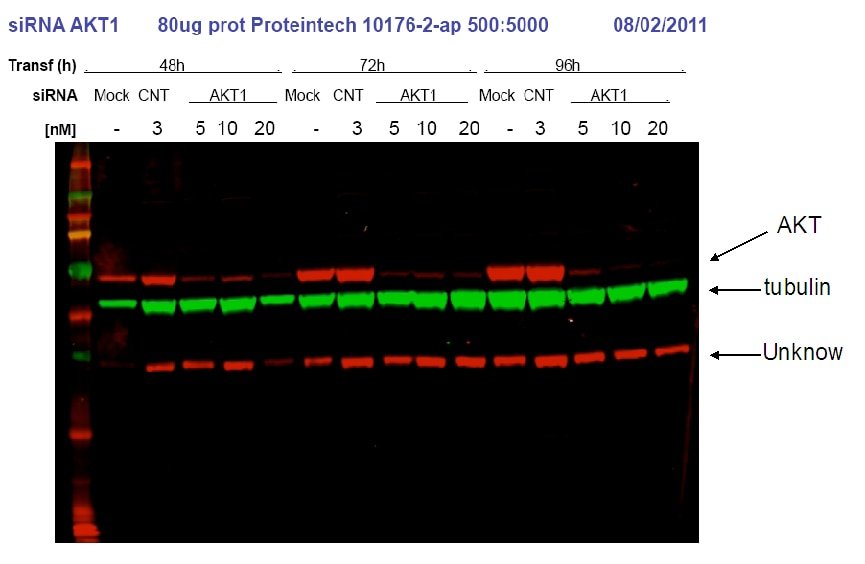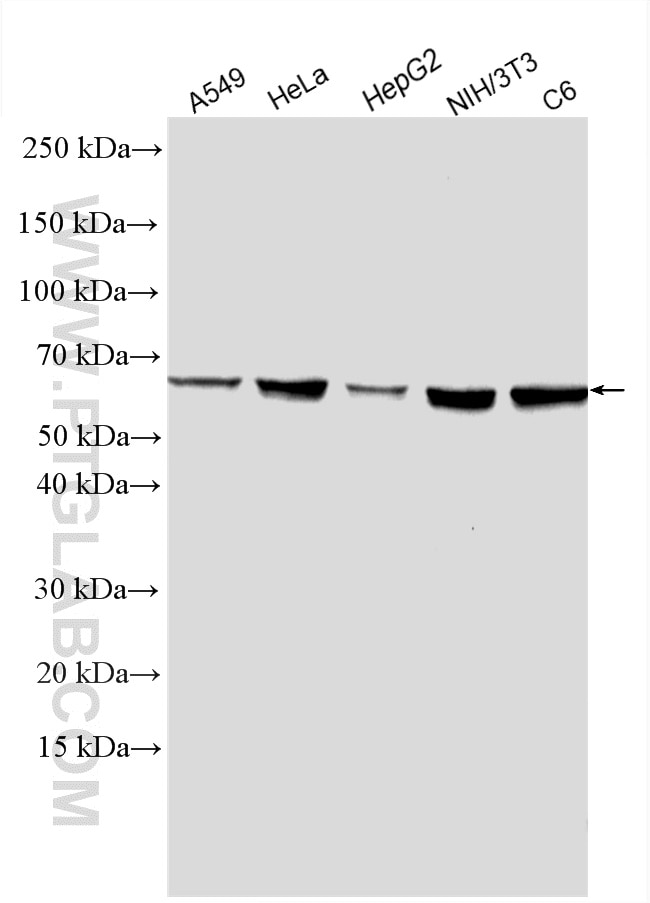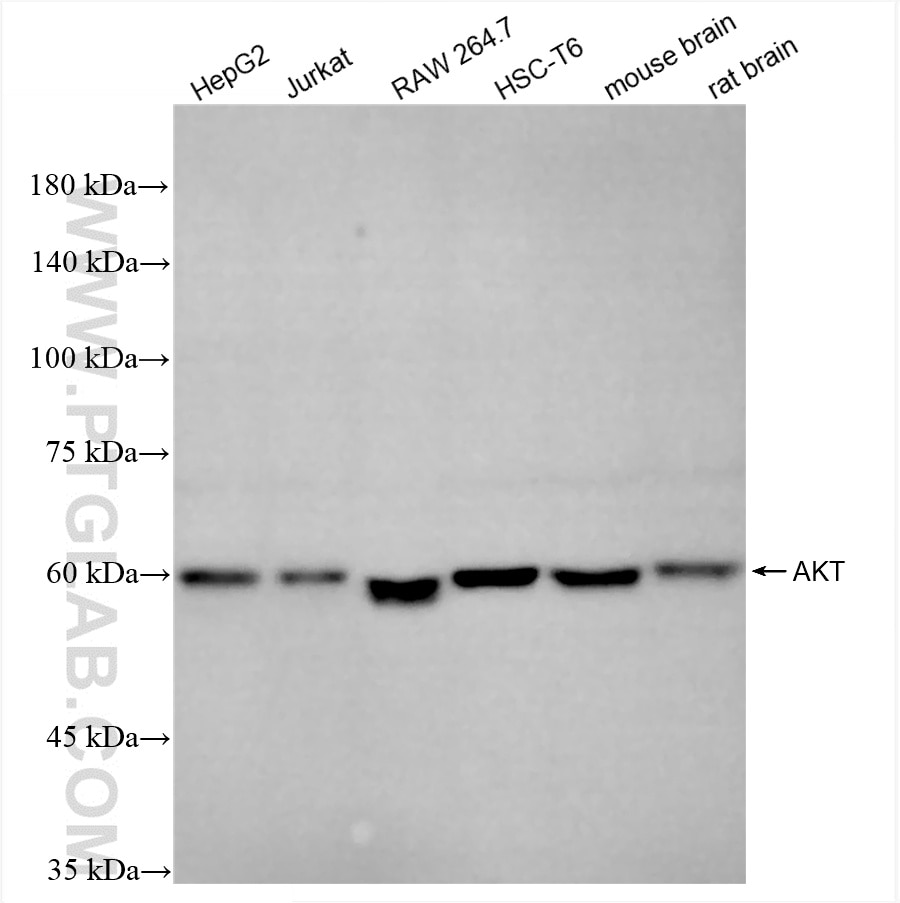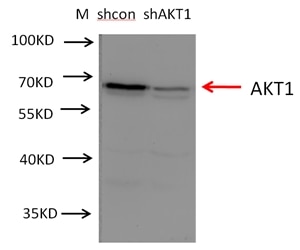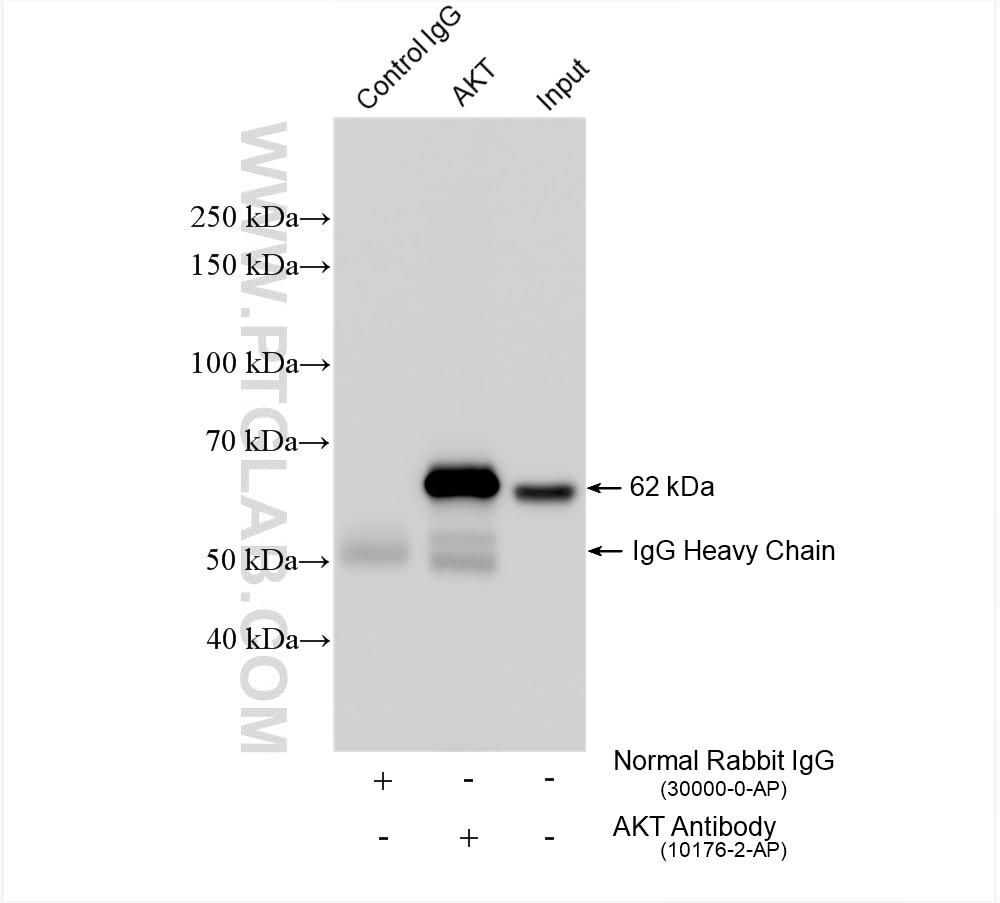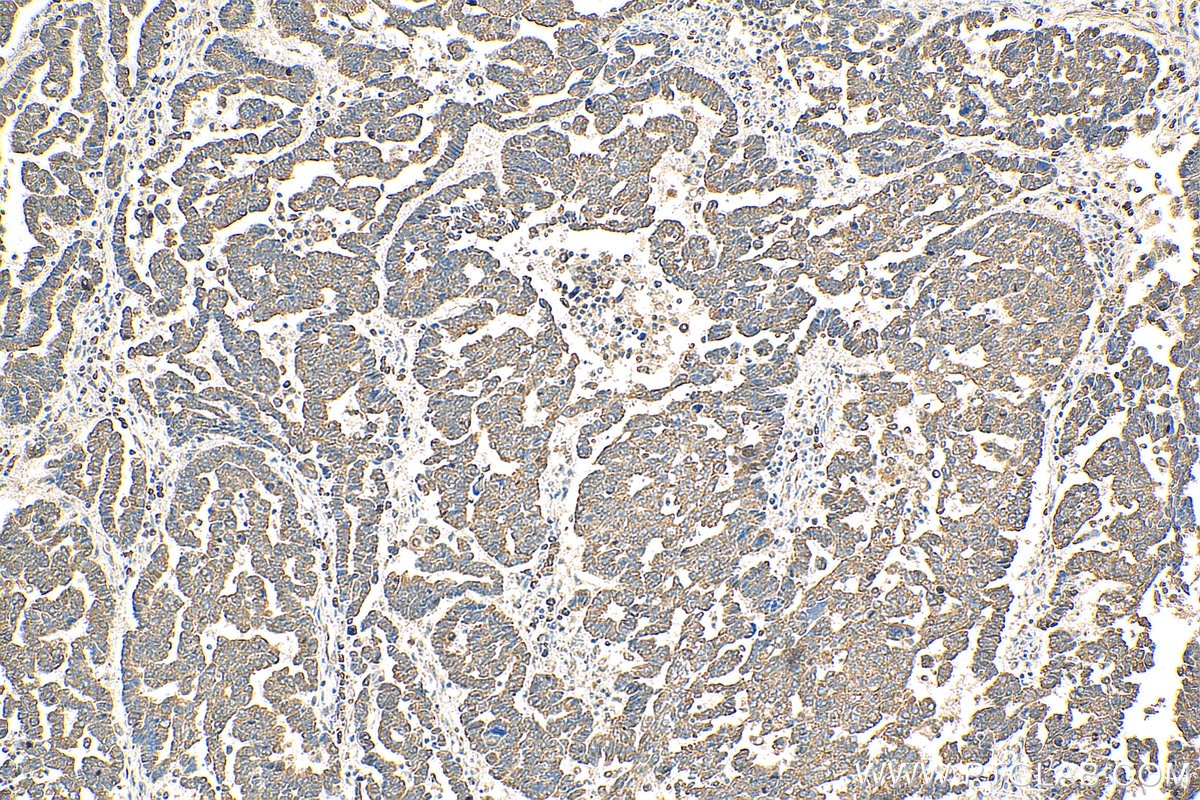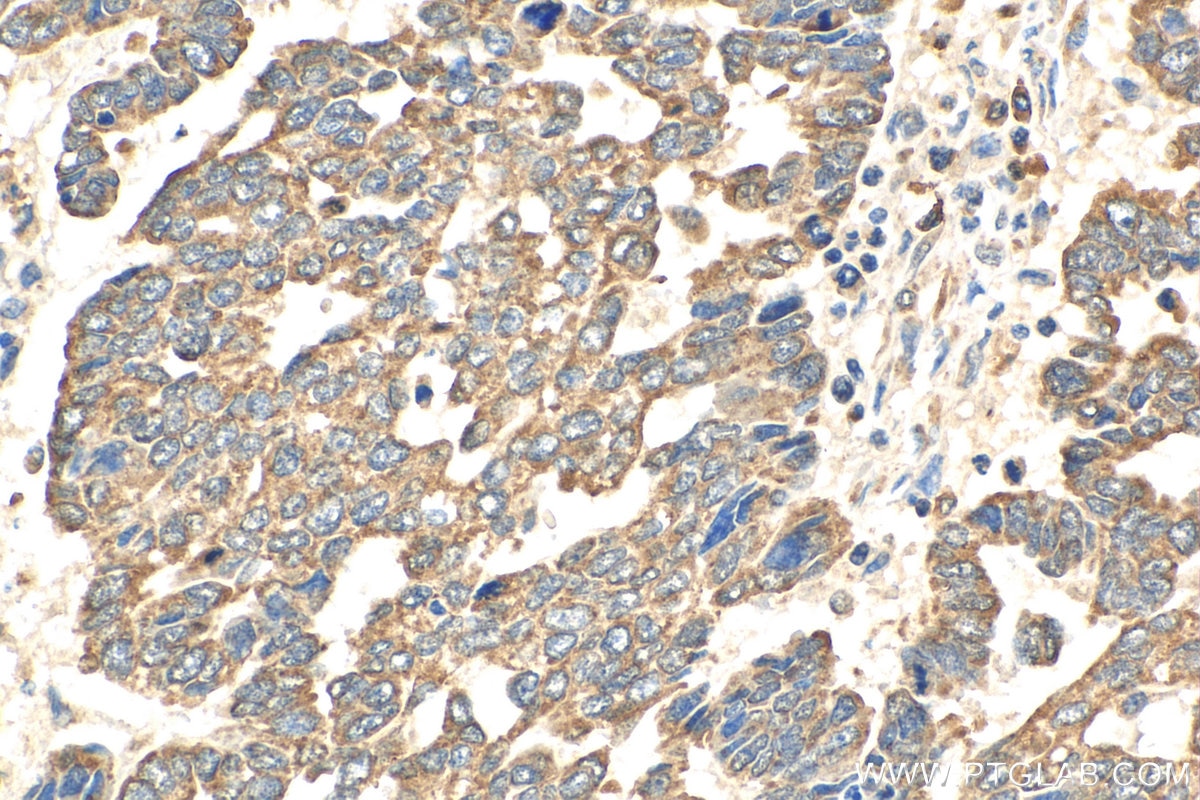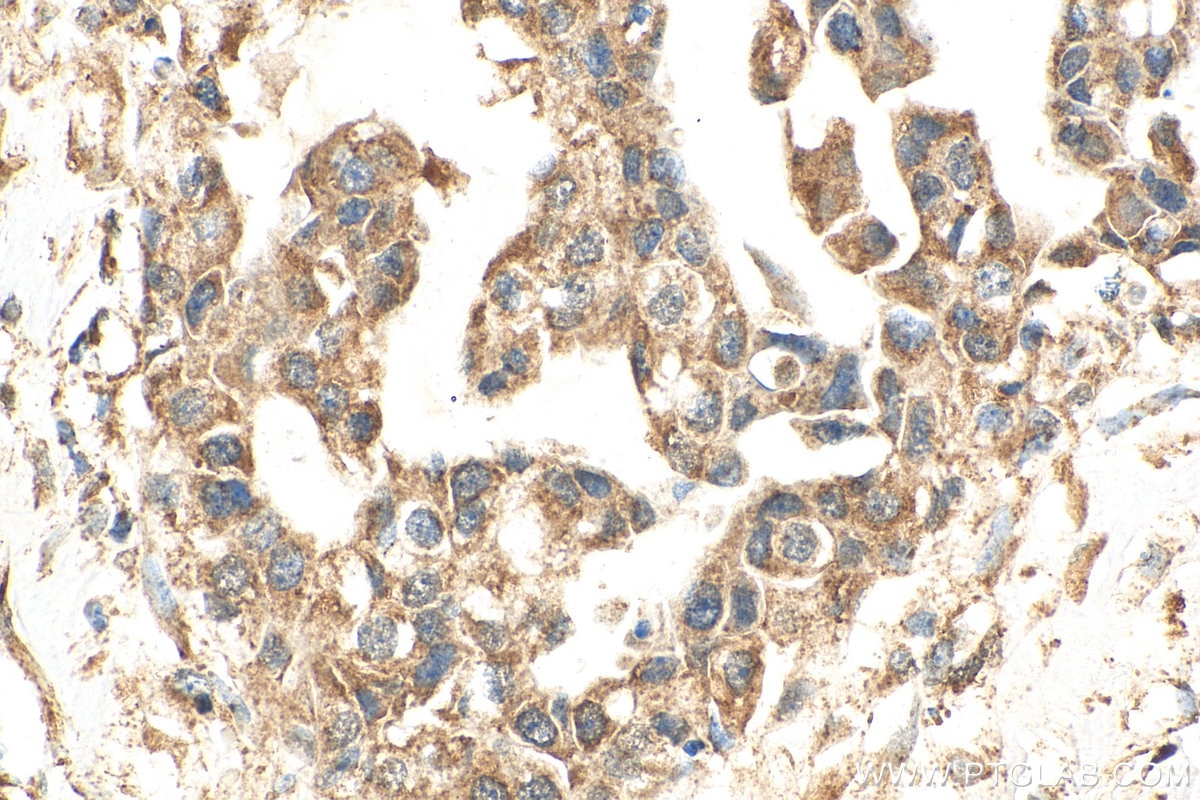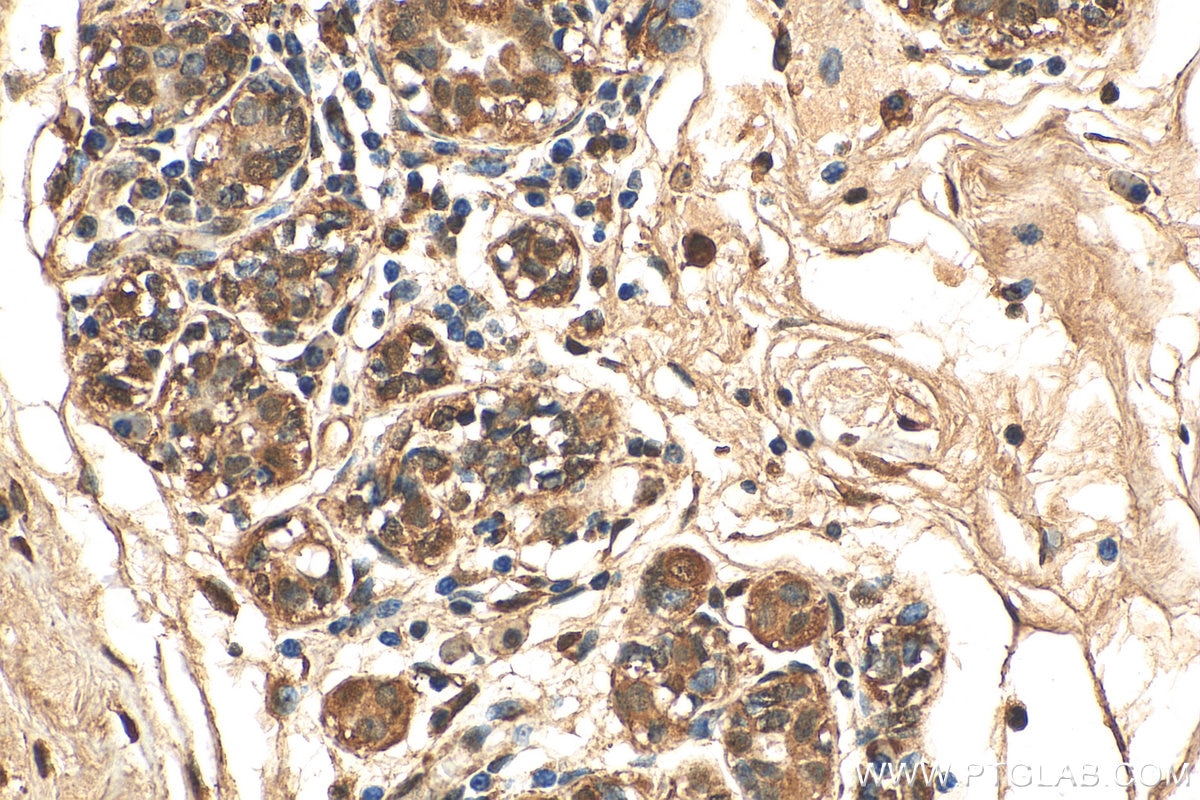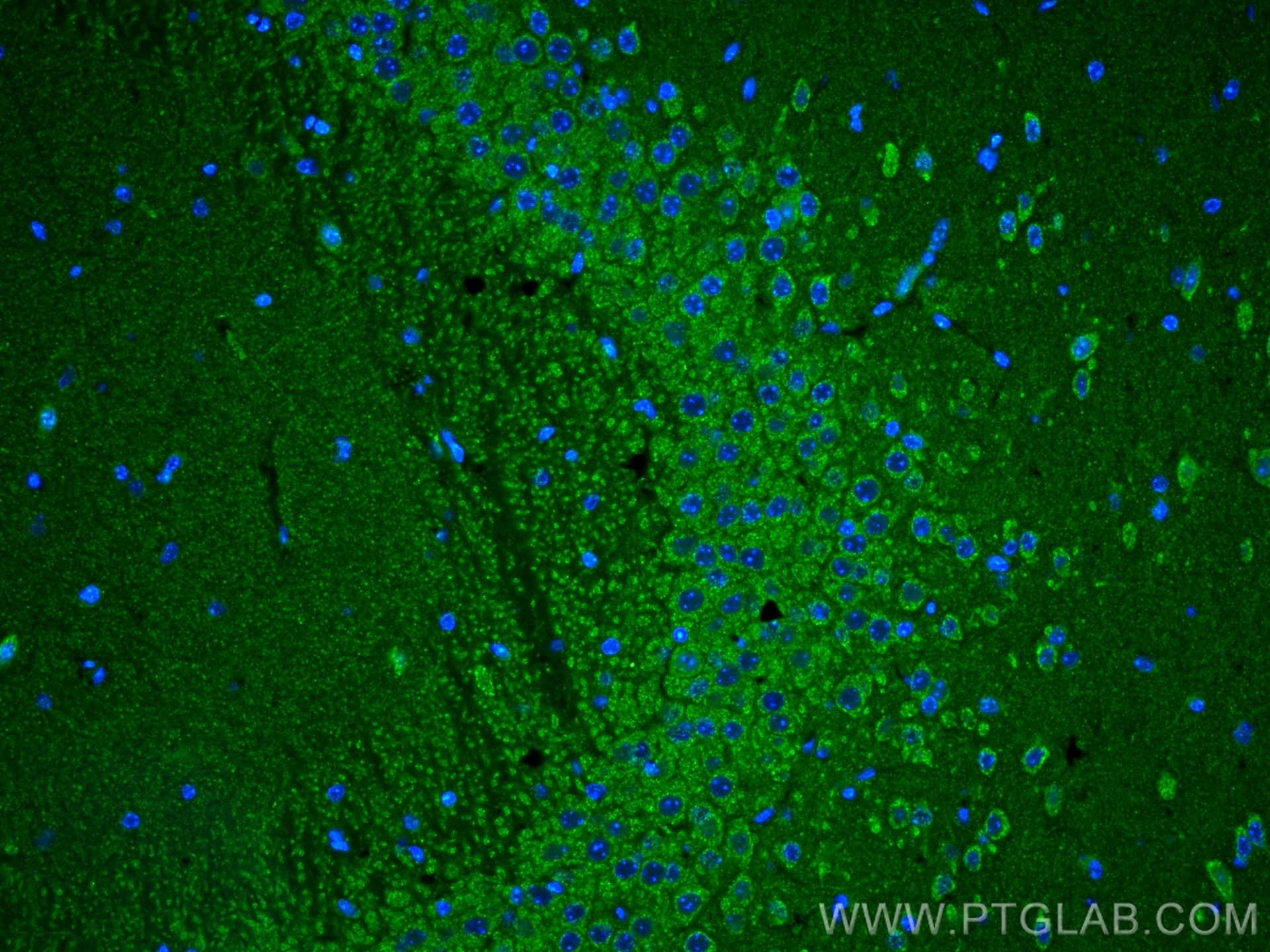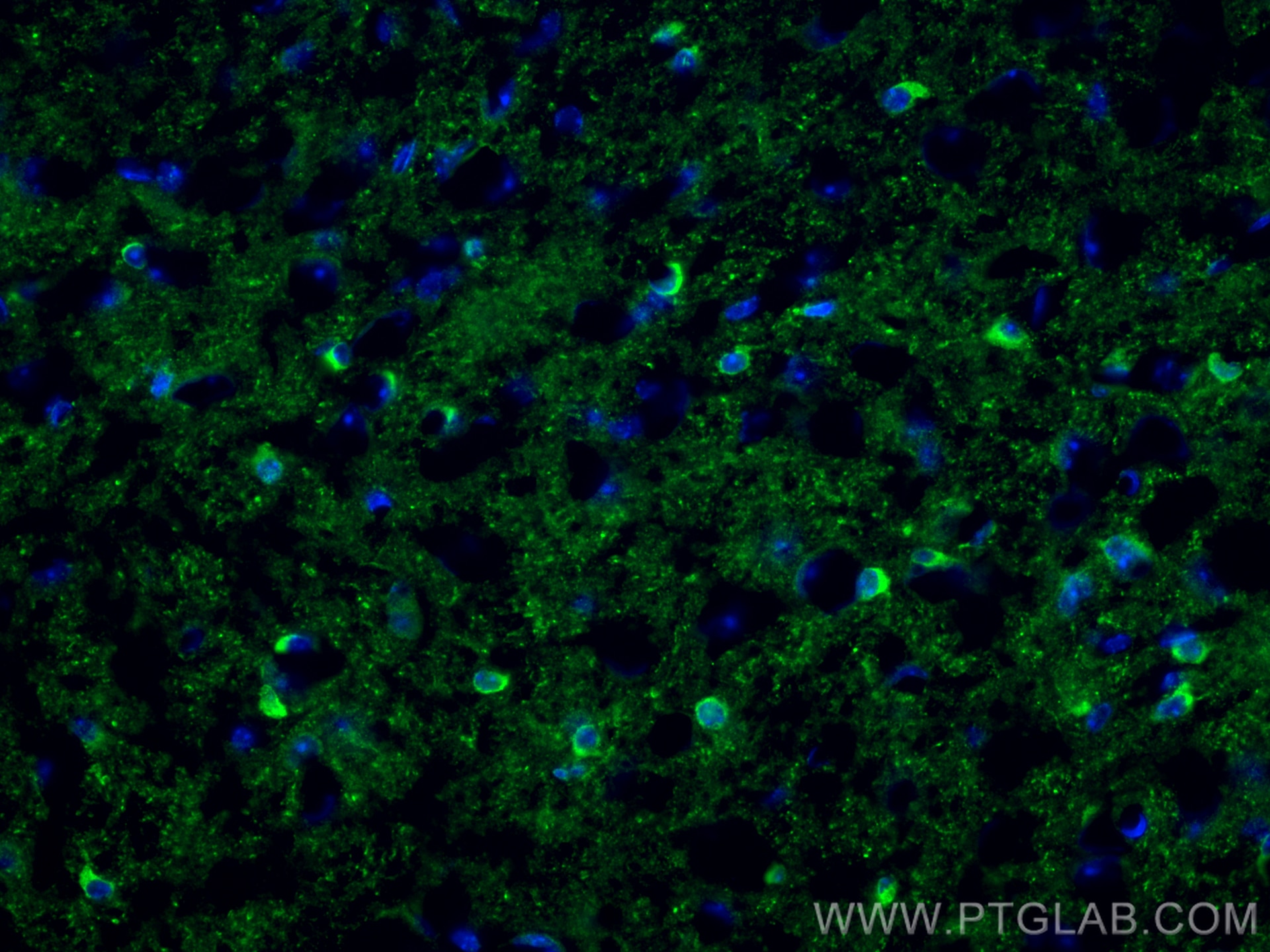- Phare
- Validé par KD/KO
Anticorps Polyclonal de lapin anti-AKT
AKT Polyclonal Antibody for WB, IHC, IF-P, IF-Fro, IP, ELISA
Hôte / Isotype
Lapin / IgG
Réactivité testée
Humain, rat, souris et plus (5)
Applications
WB, IHC, IF-P, IF-Fro, IP, CoIP, ELISA
Conjugaison
Non conjugué
N° de cat : 10176-2-AP
Synonymes
Galerie de données de validation
Applications testées
| Résultats positifs en WB | cellules A549, cellules C2C12, cellules C6, cellules HeLa, cellules HepG2, cellules HSC-T6, cellules Jurkat, cellules MCF-7, cellules NIH/3T3, tissu cérébral de rat, tissu cérébral de souris |
| Résultats positifs en IP | cellules HeLa, |
| Résultats positifs en IHC | tissu de tumeur ovarienne humain, tissu de cancer du sein humain il est suggéré de démasquer l'antigène avec un tampon de TE buffer pH 9.0; (*) À défaut, 'le démasquage de l'antigène peut être 'effectué avec un tampon citrate pH 6,0. |
| Résultats positifs en IF-P | tissu cérébral de souris, |
| Résultats positifs en IF-Fro | tissu cérébral de souris, |
Dilution recommandée
| Application | Dilution |
|---|---|
| Western Blot (WB) | WB : 1:2000-1:12000 |
| Immunoprécipitation (IP) | IP : 0.5-4.0 ug for 1.0-3.0 mg of total protein lysate |
| Immunohistochimie (IHC) | IHC : 1:50-1:500 |
| Immunofluorescence (IF)-P | IF-P : 1:200-1:800 |
| Immunofluorescence (IF)-FRO | IF-FRO : 1:50-1:500 |
| It is recommended that this reagent should be titrated in each testing system to obtain optimal results. | |
| Sample-dependent, check data in validation data gallery | |
Applications publiées
| KD/KO | See 8 publications below |
| WB | See 1503 publications below |
| IHC | See 47 publications below |
| IF | See 24 publications below |
| IP | See 9 publications below |
| ELISA | See 1 publications below |
| CoIP | See 4 publications below |
Informations sur le produit
10176-2-AP cible AKT dans les applications de WB, IHC, IF-P, IF-Fro, IP, CoIP, ELISA et montre une réactivité avec des échantillons Humain, rat, souris
| Réactivité | Humain, rat, souris |
| Réactivité citée | rat, Chèvre, Humain, poisson-zèbre, poulet, singe, souris, fish |
| Hôte / Isotype | Lapin / IgG |
| Clonalité | Polyclonal |
| Type | Anticorps |
| Immunogène | AKT Protéine recombinante Ag0213 |
| Nom complet | v-akt murine thymoma viral oncogene homolog 1 |
| Masse moléculaire calculée | 56 kDa |
| Poids moléculaire observé | 56-62 kDa |
| Numéro d’acquisition GenBank | BC000479 |
| Symbole du gène | AKT1 |
| Identification du gène (NCBI) | 207 |
| Conjugaison | Non conjugué |
| Forme | Liquide |
| Méthode de purification | Purification par affinité contre l'antigène |
| Tampon de stockage | PBS with 0.02% sodium azide and 50% glycerol |
| Conditions de stockage | Stocker à -20°C. Stable pendant un an après l'expédition. L'aliquotage n'est pas nécessaire pour le stockage à -20oC Les 20ul contiennent 0,1% de BSA. |
Informations générales
The serine-threonine protein kinase AKT1 is catalytically inactive in serum-starved primary and immortalized fibroblasts. AKT1 and the related AKT2 are activated by platelet-derived growth factor. The activation is rapid and specific, and it is abrogated by mutations in the pleckstrin homology domain of AKT1. It was shown that the activation occurs through phosphatidylinositol 3-kinase. In the developing nervous system AKT is a critical mediator of growth factor-induced neuronal survival. Survival factors can suppress apoptosis in a transcription-independent manner by activating the serine/threonine kinase AKT1, which then phosphorylates and inactivates components of the apoptotic machinery.
Protocole
| Product Specific Protocols | |
|---|---|
| WB protocol for AKT antibody 10176-2-AP | Download protocol |
| IHC protocol for AKT antibody 10176-2-AP | Download protocol |
| IF protocol for AKT antibody 10176-2-AP | Download protocol |
| IP protocol for AKT antibody 10176-2-AP | Download protocol |
| Standard Protocols | |
|---|---|
| Click here to view our Standard Protocols |
Publications
| Species | Application | Title |
|---|---|---|
Nat Commun Genome-wide enhancer-gene regulatory maps link causal variants to target genes underlying human cancer risk | ||
Adv Sci (Weinh) Cis-Regulation of an m6A Eraser by an Insertion Variant Associated with Survival of Patients With Non-Small Cell Lung Carcinoma | ||
Sci Adv Platelet P-selectin initiates cross-presentation and dendritic cell differentiation in blood monocytes. | ||
Acta Pharm Sin B Oral nano-formulation improves pancreatic islets dysfunction via lymphatic transport for antidiabetic treatment |
Avis
The reviews below have been submitted by verified Proteintech customers who received an incentive for providing their feedback.
FH Ana (Verified Customer) (06-17-2025) | The staining looks very good. It might be better to dilute a bit more than 1:2000 to reduce background noise.
|
FH Hyopil (Verified Customer) (08-23-2021) | Worked well with western blotting
|
FH Azita (Verified Customer) (06-02-2021) | Western blot analysis using AKT polyclonal antibody in NSC34 cell line at dilution of 1:500.
|
